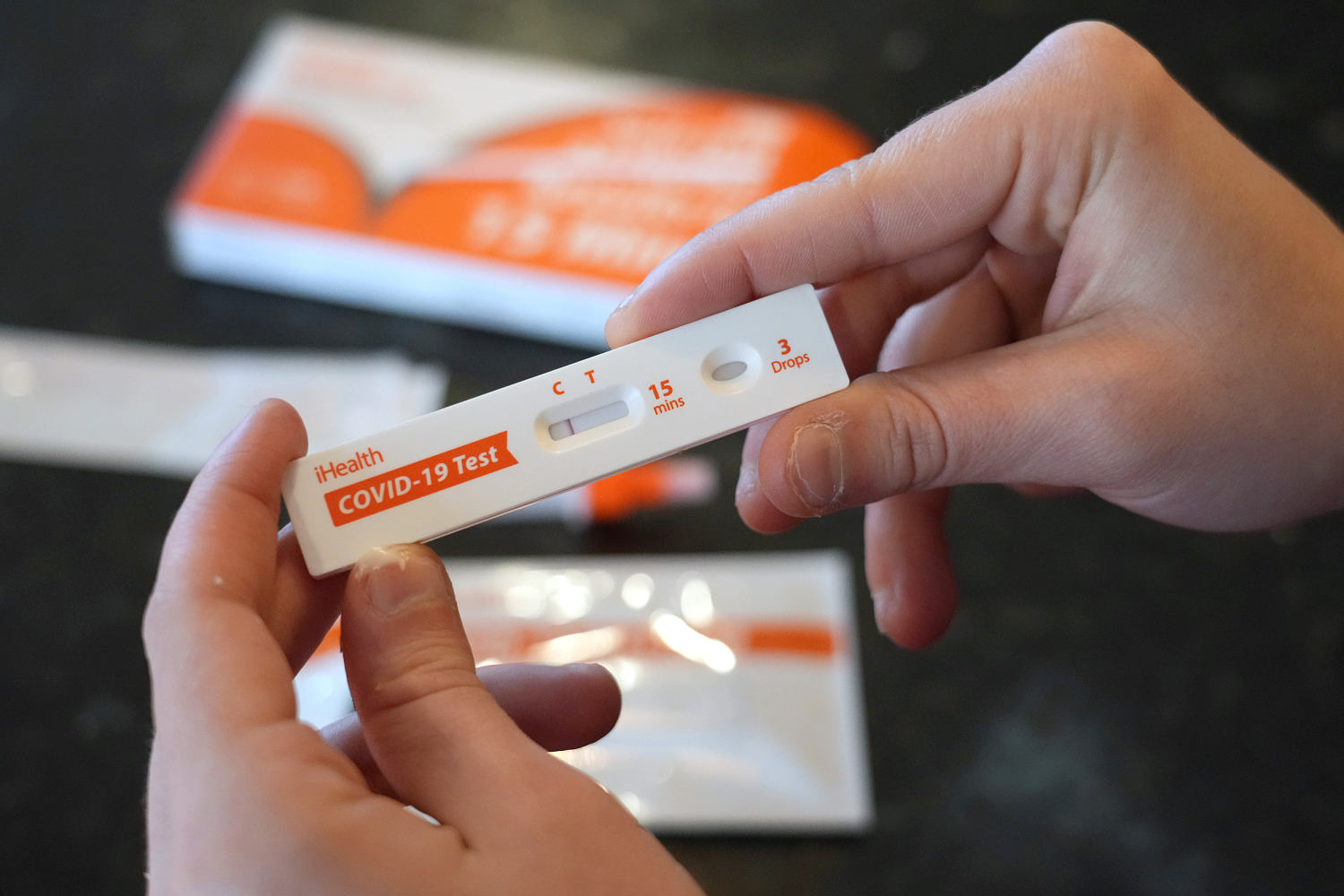[ad_1]

The U.S. is currently in the midst of a Covid wave, fueled by the JN.1 variant that’s driving up hospitalizations and deaths across the country. For most people, however, the new variant doesn’t seem to be causing worse symptoms.
That’s left many wondering whether we need to keep swabbing our nasal passages with Covid tests at the first sign of congestion or achiness? How well do at-home rapid tests work against the new variant?
Here’s what to know:
Do I still need to take a Covid test?
Influenza and some cold viruses are circulating along with Covid. So there are good reasons to know which virus you’ve got, particularly if you are at higher risk of getting really sick.
“It’s important to know if you have Covid versus the flu versus something that’s not viral at all — like strep throat — because they have different treatments,” said Dr. Abraar Karan, an infectious disease physician at Stanford Medicine. “They have different treatments, and the sooner you get treated the better outcome you’ll have.”
For a healthy 25-year-old, there is still some utility in getting tested. If somebody in the home has a weak immune system or is fighting cancer, for example, it’s important to isolate if it’s Covid.
“Remember for all these viruses or bacterial infections, contagiousness is different and how sick you may get is different.” Karan said.
Joseph Petrosino, a chair of molecular biology and microbiology at Baylor College of Medicine, acknowledged that while it may not be as necessary for young, healthy people to take an at-home test, it can be helpful to know if it’s Covid in case someone ends up with lingering symptoms.
“There are healthy people, runners or people who work out, who do get long Covid as well,” he said. “You just really never know — it’s hard to predict just based on comorbidity factors alone.”
Otherwise, for someone who is low-risk, getting a positive Covid test won’t change much about treatment. Whether it’s Covid, a cold or flu, get plenty of rest, hydration and stay away from others.
How does the new variant affect testing?
There is no data that the JN.1 variant should have any effect on the results of an at-home rapid test, experts say.
“I have not seen anything to suggest that the newer variants have evaded detection on tests,” said Karan. “Certainly this has happened in the past with other diagnostics earlier in the pandemic, but at this point the tests should pick up these variants.”
Susan Butler-Wu, a clinical pathologist at Keck School of Medicine at the University of Southern California, said that while she hasn’t seen data for this specific variant, if it’s anything like other variants, it won’t be an issue. Rapid tests actually look for a part of the virus that is less likely to mutate and dodge the tests.
“There’s always this fear that we’re going to have some mutation that’s now going to make the tests not work, but so far that’s not really the case,” said Butler-Wu.
When is the best time to test?
In the early days of the pandemic, before most people had some kind of immunity either after infection or from the vaccines, an individual’s viral load would be highest when symptoms first appeared.
Now, the levels of virus may actually be highest a few days into the illness, according to a study published last fall in the journal Clinical Infectious Diseases from researchers at Harvard Medical School. They found that in those with pre-existing immunity, the level of virus peaks around the fourth day of symptoms.
This means that if someone tests too early in the illness, it may show up negative.
“Their symptoms could be caused by their immune response,” Karan said. “So you’re getting some inflammation and that’s causing symptoms, and that’s also preventing the virus from building up quite as fast, and so your initial test could be negative.”
The Centers for Disease Control and Prevention still recommends testing immediately if you believe you’ve been exposed to Covid and are showing symptoms such as congestion, cough or body aches.
If you’ve been exposed but don’t have any symptoms, the CDC says to wait five days.
There is a misconception that rapid tests are “one and done,” says Butler-Wu.
“If you’re symptomatic and the first one is negative, you need to repeat it,” she said.
The official guidance from the CDC is that if you have symptoms, take a rapid test, and if it’s negative repeat it 48 hours later.
I tested positive. Does that mean I’m contagious?
At-home rapid tests are a good way to know if someone is contagious.
Simply put, rapid tests require a higher level of virus to turn positive, and higher levels of virus typically mean somebody is more contagious.
There are some limitations to the tests, however.
Karan said that while early on in the course of the illness they can be good proxies for contagiousness, they aren’t as reliable at the end of an illness.
There is data where rapid tests were positive, but when they got people’s samples, the virus couldn’t be cultured — meaning that those people were unlikely to be contagious, Karan said.
A 2022 study from researchers at Harvard Medical School suggested that only half of people who test positive after five days are actually contagious.
“After that time period, if your rapid test is positive it’s not a guarantee you’re still contagious.”
[ad_2]
Source link


